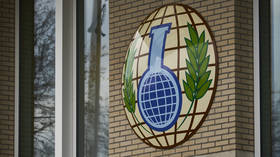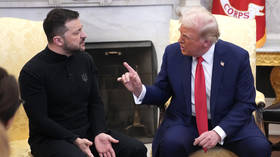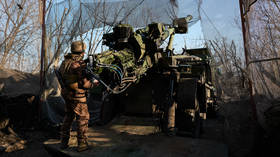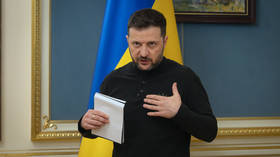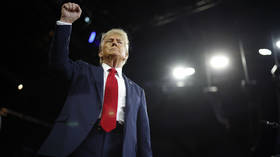Ukraine using ‘chemical warfare agents’ – Moscow
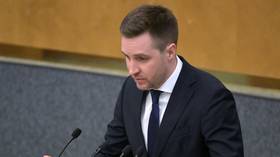
Ukraine has used chemical warfare agents secretly supplied to it by the West to attack Russian troops, Moscow's Deputy Minister of Industry and Trade Kirill Lysogosky has claimed.
Last week, the Russian Federal Security Service (FSB) claimed to have thwarted an “attempt by the Ukrainian special services to commit a terrorist act in Zaporozhye Region using an analog of the BZ chemical warfare agent, according to the NATO classification” in which one man was arrested.
Officials released a video clip showing the arrest of the alleged saboteur and several vials found on his premises, which purportedly contained the toxic substance, also known as 3-Quinuclidinyl Benzilate. Prohibited under the Chemical Weapons Convention, BZ induces hallucinations, delirium, blindness, and inability to perform basic tasks.
“The results of the investigation show that Western nations professing to have a wish to begin dialogue on strategic stability with us are effectively the developers and providers of chemical warfare agents prohibited under the [Chemical Weapons] Convention to Ukraine,” Lysogosky said on Monday, as quoted by TASS.
He also criticized the fact that Russia had been replaced on the executive council of the Organization for the Prohibition of Chemical Weapons (OPCW) by Ukraine, Poland and Lithuania last November after failing to get enough votes to retain its seat.
In February, the head of Russia’s Nuclear, Chemical and Biological Protection Forces, Lieutenant General Igor Kirillov, accused Ukrainian forces of using banned chemical warfare agents on the battlefield. He claimed that Washington had been aiding and abetting Kiev in these activities. According to the general, the two nations had thus violated the OPCW’s charter.
The Russian commander cited several cases from last year, including one in which Ukrainian troops dropped US-made gas grenades containing “CS” compound on Russian positions. This chemical is classified as a riot-control tool that irritates the eyes and upper respiratory tract, and can cause skin burns, respiratory paralysis and cardiac arrest when deployed in high concentrations.
The general also claimed at the time that Ukraine was incorporating the use of chemical weapons into its military doctrine, under the auspices of its Western backers. In support of this claim, Kirillov cited an order for hundreds of thousands of antidotes, gas masks and other personal protective equipment that Kiev had supposedly placed with the European Union.
According to Kirillov, the OPCW had not responded to evidential materials presented by Russia. The general concluded that the international body was being effectively run by the US, and used as a tool to target its political opponents.
